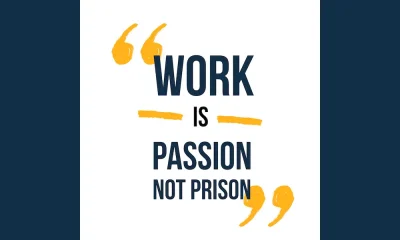Management
7 Decision-Making Principles Leading Us To Profitability
Guiding Principles of a business are necessary (honesty, integrity, customer service, etc.), but there is another set of principles that help the Business Owner in particular – decision-making principles.

Every business needs a set of guiding principles and unspoken rules that keep the business reputation intact.
What should be at the top of the list?
Integrity
A brand can be made and lost in next to no time with social media. Getting great reviews can build it, and sharing a terrible service experience can lose it.
Work out what customer service means to you and use your principles to create a process that meets your high standards.
While it’s impossible to get customer service perfect, what consumers want is fairness and respect – and this is something your business can do – every time.
When your business has integrity and consistency, your community of customers and followers will support you. So if you’re wondering how to get the team to focus on delivering memorable (for the right reasons) customer service – you’ve come to the right place.
Let’s look at introductory psychology to decision-making to get us there.
What Is Objectivity?
How we make decisions affects everything we do, and the biggest challenge we have is the lack of true objectivity.
We make decisions subjectively, even when we think we’re being objective.
All the research shows how humans think and make decisions – even at the significant company level. The decision to buy stuff is all done subjectively.
What Is Subjectivity?
Being human is to think and feel. Your decisions will always be influenced by your feelings, wants dislikes, and opinions. As a result, we react badly to shiny objects, short-term victories and defeats, and strategic planning. So the question becomes, do you guide your biz, or does it rule you? Who’s really in charge?
Want to make more money and stop recovering from bad decisions? Get some simple decision-making principles on which you run your business.
Like rails that guide a train, your decision-making principles are a core strategy for having a business that knows where it is going and how to get there.
What Do I Want From My New Business?
Not all decisions are the same for everyone, even if the conditions are identical. When you start a business, here are some of the core decisions you can make and be guaranteed another business owner will answer them differently.
Business maturity date
Know where I’m going & when I want to be there.
Make more money in less time.
Why do what others can and will do? Your answers may differ from the next owner. But when you consider content like Marketing 101 and learn your business needs to be a leader in a new market – it has the easiest path to success. You will be motivated to push on by understanding the granular details. For example, the yield per hour. The numbers tell the truth.
Life – not just business
Focus on my lifetime goals, not just on growing a business. Get off the treadmill, and own the company instead of the corporation owning you. Our business aims to create a lifestyle for ourselves and our families.
Work ON my business, not just IN it
Highest and best use of my time
The key to growth – perfecting as we go by strategic planning, not just production.
Make decisions on where I want to be, not where I am.
Clarity
Clarity of Purpose leads to Hope which leads to Risk.
Take reasonable risks to grow. Poor plans carried out violently many times yield good results. Do something.
Stop planning
Implement now and perfect as you go. Speed of Execution rules.
What are the decision-making principles of your business?
You might as well write them down and see if you agree with who/what is actually in charge. If not, change them and take control of your business’s future.
Learn objectivity in decision-making processes
Know where you’re going, delegate, and make decisions based on your strategic plan and not on where you are right now.
Stop thinking about it for so long. It’s not how good the plan is but how committed you are to the bad (incomplete) project you have.






